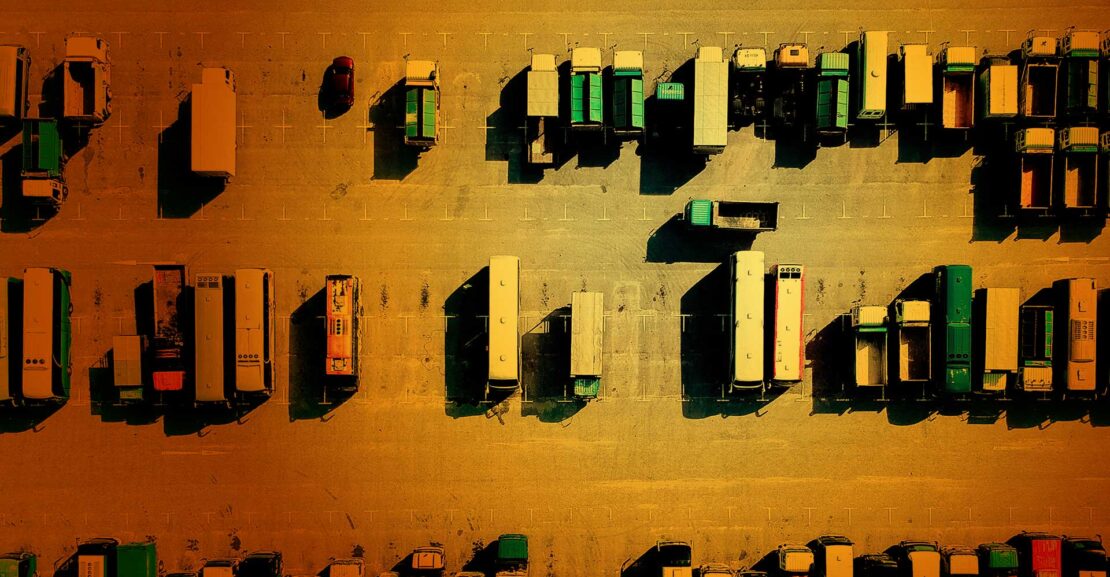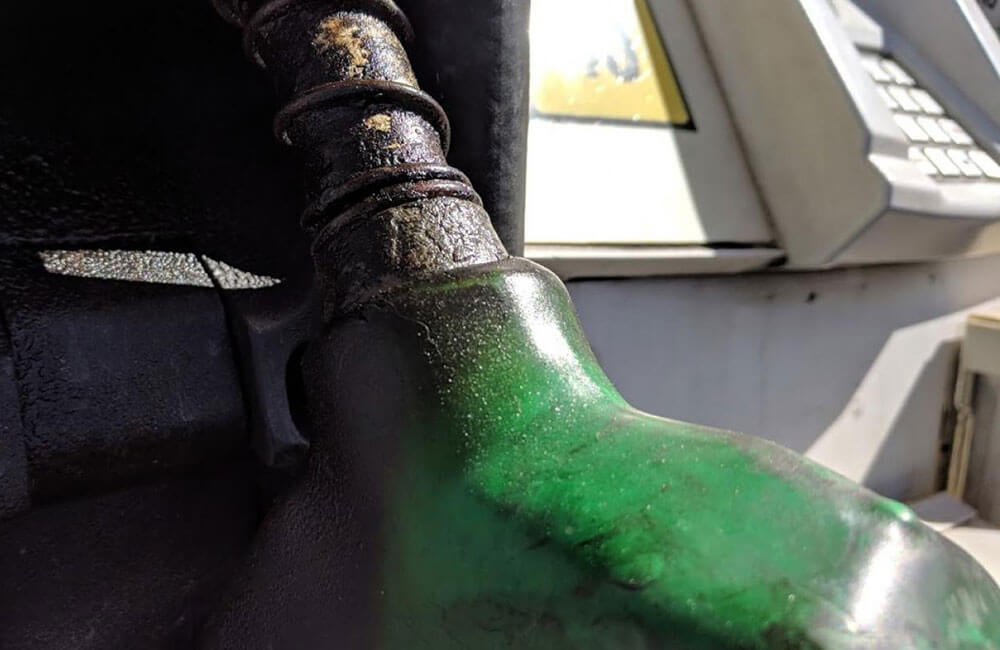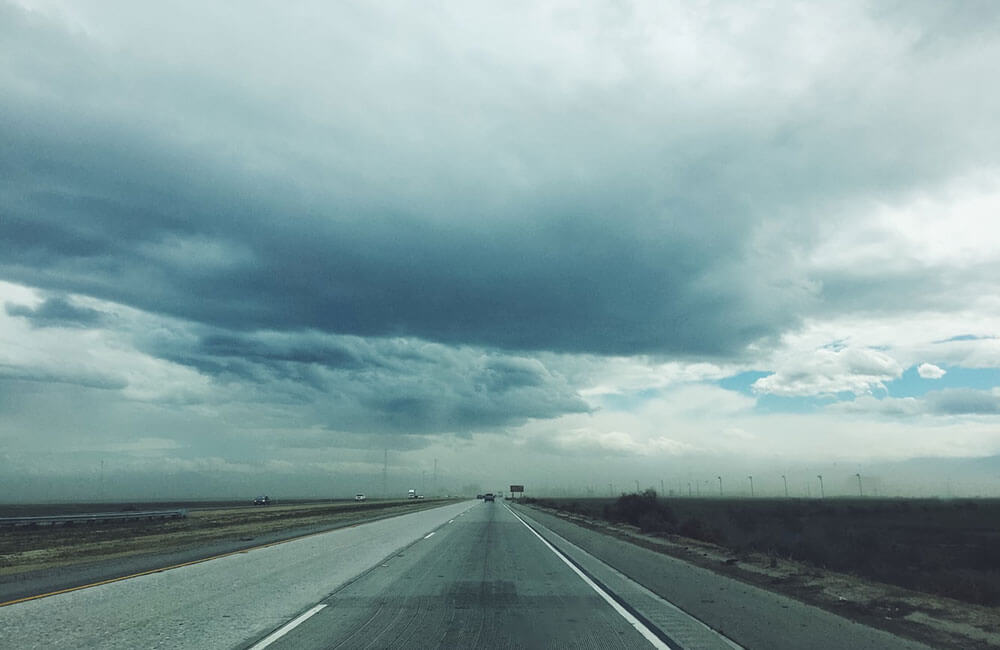New California Laws Are Tough on Trucks

California Governor Gavin Newsom signed two new bills into law in September, both of which aim to further crack down on the emissions of heavy-duty diesel trucks.
This move could certainly spell bad news for the trucking industry, with one of the laws establishing “smog checks,” which will be required to register and/or operate a commercial truck in the state. The other law looks to further accelerate the move from diesel trucks and encourage the move to zero emissions vehicles by pressing the state to phase-out diesel trucks all together by 2050.

The Smog Check Law
The first law establishes a “Heavy-Duty Vehicle Inspections and Maintenance Program” that will test how effective a system is at controlling oxides of nitrogen and other emissions. This new law allows onboard diagnostics system data and various testing procedures to be used in measuring the effectiveness of emissions control systems.
California Senator Connie Leyva backed up the law, stating: “Just as car owners have to get their own personal cars ‘smog checked’ every two years, so too should truck operators be required to maintain their emissions controls so that we can ensure long lasting air quality improvements here in California.” Senator Leyva sponsored the legislation.
The testing that this law implements will be much more in-depth than the existing PSIP (Periodic Smoke Inspection Program) testing that the state currently conducts. The existing test measures smoke opacity levels for fleets in California consisting of two or more trucks.
The California Air Resources Board (CARB) has been told to phase out the PSIP testing once the new program has been rolled out. The new law will also apply even to single-vehicle fleets, requiring the testing of all diesel trucks that weigh over 14,000 pounds.

Diesel Truck Phase-Out
Also, at the center of heated debate, the “Ditching Dirty Diesel” bill is seeking to phase out diesel trucks completely by 2050. This law also prohibits the operation of trucks that have an illuminated malfunction indicator light (MIL) and bans the operation of trucks with visible smoke exhaust (with active regeneration being the only case of exception).
This particular bill was sponsored by Senator Nancy Skinner and requires that CARB recommends new goals to further reduce emissions from medium and heavy-duty trucks, with goals set for 2030 and 2050, respectively. The law also places CARB under pressure to find incentives for fleets the reduce their GHG sooner than legally required.

Is Trouble Ahead?
Many industry authorities have stepped forward to express their disapproval of the new bill. In particular, Western States Trucking Association’s director of government affairs and communications, Joe Rajkovacz, came forward and stated he opposed it because “[CARB] had already moved toward reducing opacity limits, and we weren’t objecting to that. This is not only redundant, but also costly.”
He also brought up another area of concern, pointing out that the law gives emissions testers access to engine control module data. Rajkovacz acknowledged that CARB only wants emissions data according to the law but reminded that this module exposes “certainly a lot of other data with it.”
So, will it mean trouble for the trucking industry? Many authorities believe it will, and it won’t be long until we know for sure with the full rollout expected within two years after the pilot program’s completion.
It’s also worth noting that out-of-state truck owners won’t get off any easier. The law will require CARB to establish a method for them to also verify compliance with the standards before they enter California. As part of the program, a $30 fee is planned to cover the testing costs. This will go into the Truck Emission Check Fund, which will be used for administrative purposes within the program.
Violation penalties will be deposited into the Air Pollution Control Fund for the state of California. As far as what these penalties will be, truck owners whose trucks do not pass the emissions test may be issued a $50 temporary permit, which is valid for 60 days and allows them to operate as they work to become emissions compliant.
Looking Down the Road
The original bill set an expectation for an 80% reduction in greenhouse gas emissions by 2050, which would effectively phase diesel trucks out altogether. However, the final version of the bill signed into law did not have a specific emissions reduction goal. Now, it is up to CARB to establish feasible reduction goals for the state.
To top it off, CARB must also develop a strategy to bring all medium and heavy-duty trucks into compliance by January 1, 2021, which means we can expect many changes in the coming year as fleets push to adhere to the even stricter standards before new deadlines hit.
Want more trucking news? Sign up for Suppose U Drive’s email list.

